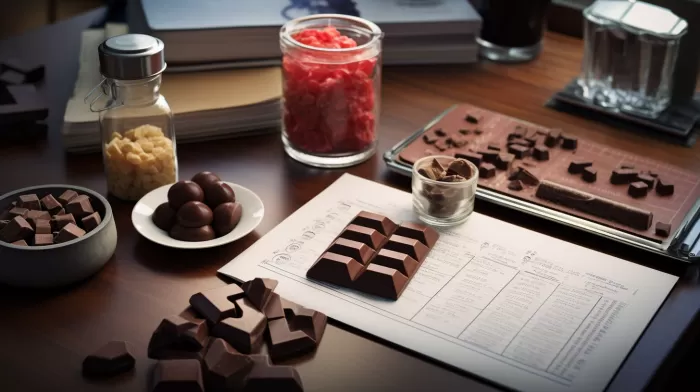Nobel Prize winners are known for their brilliance and groundbreaking research, but did you know that they might also have a secret weapon to help them reach the pinnacle of their fields? It turns out that the sweet, indulgent treat we all love – chocolate – might just be the key to unlocking our full cognitive potential.
Correlation Between Chocolate Consumption and Winning Nobel Prizes
In an intriguing study conducted by Dr. Franz Messerli of St. Luke’s-Roosevelt Hospital and Columbia University in New York, a strong correlation was discovered between a country’s chocolate consumption and its propensity to produce Nobel Prize winners. Dr. Messerli’s research suggested that the more chocolate people in a country consumed, the more likely it was that the country would have a high number of Nobel laureates. The Swiss currently hold the top spot in both chocolate consumption and the number of Nobel Prize winners.
The Science Behind Chocolate and Cognitive Function
So, what is it about chocolate that might give these brilliant minds an edge? Chocolate, specifically dark chocolate, is rich in compounds called flavonoids, which have a strong antioxidant effect. These flavonoids are known to reduce inflammation and improve blood flow, which can enhance brain function. Additionally, chocolate contains small amounts of caffeine and theobromine, which are known to improve mood, increase mental alertness, and enhance cognitive function.
Several studies have supported these claims. Research conducted by the University of Nottingham discovered that consuming cocoa flavonols increased blood flow to the brain, improving cognition and memory 1. Another study by researchers at the University of Oxford found a link between regular chocolate consumption and improved cognitive function, including better abstract thinking, working memory, and overall mental performance 2.
The Importance of Quality and Quantity
Before you rush out to stock up on chocolate bars, it is essential to remember that not all chocolates are created equal. As mentioned earlier, dark chocolate is known for its high concentration of flavonoids, while milk and white chocolates may contain significantly less, if any, of these beneficial compounds. Make sure to look for high-quality dark chocolate, with a cocoa content of at least 70%.
Moreover, moderation is key. While chocolate does have some health benefits, it is also high in calories and can be quite easy to overindulge in. It’s better to consume small amounts of dark chocolate regularly rather than to gorge on an entire bar in one sitting.
Other Foods For Brain Health
Chocolate isn’t the only food that can support our cognitive health. Here are some other foods worth incorporating into your diet to boost brainpower:
- Fatty fish: Rich in omega-3 fatty acids, fatty fish like salmon, mackerel, and sardines can help improve brain health and function.
- Blueberries: These antioxidant-packed fruits help protect your brain from oxidative stress and may improve memory and cognitive function.
- Nuts and seeds: Packed with healthy fats and essential nutrients, nuts and seeds can help support brain health, reduce inflammation, and improve memory.
- Green leafy vegetables: High in brain-boosting nutrients like vitamin K and folate, these vegetables can help maintain and improve cognitive function.
Final Thoughts
The idea that chocolate consumption might be linked to better cognitive function is both fascinating and appealing. Although the link between chocolate and Nobel laureates might not be a direct cause-and-effect relationship, it sparks an interesting conversation about the role of diet in promoting brain health and cognitive function.
While it’s probably not the sole reason that so many Nobel Prize winners love to indulge in this sweet treat, dark chocolate’s potential brain-boosting properties make it worth considering as part of a balanced, healthy diet aimed at supporting cognitive health.
- University of Nottingham. (2007, June 28). Chocolate Boosts Blood Flow To Key Brain Areas. ScienceDaily. [www.sciencedaily.com/releases/2007/06/070627225458.htm] ↩
- Nurk, E., Refsum, H., Drevon, C. A., Tell, G. S., Nygaard, H. A., Engedal, K., & Smith, A. D. (2009). Intake of flavonoid-rich wine, tea, and chocolate by elderly men and women is associated with better cognitive test performance. The Journal of nutrition, 139(1), 120-127. ↩



